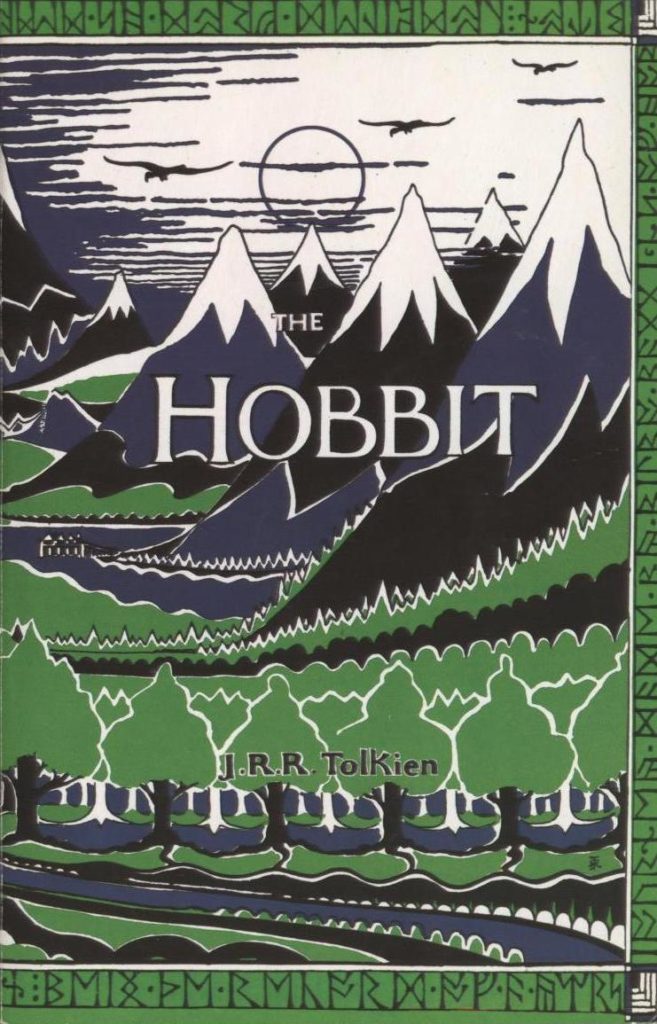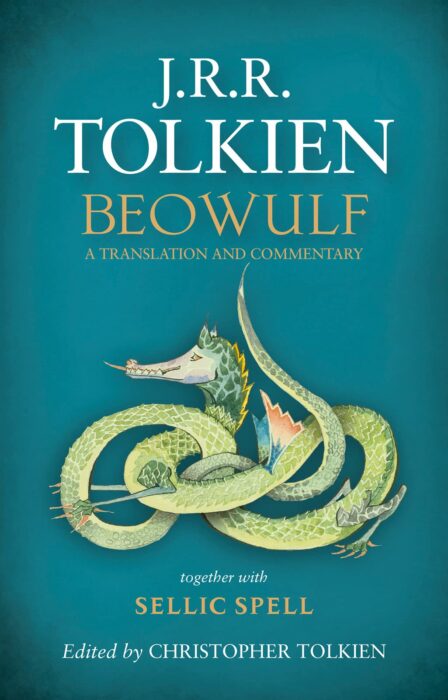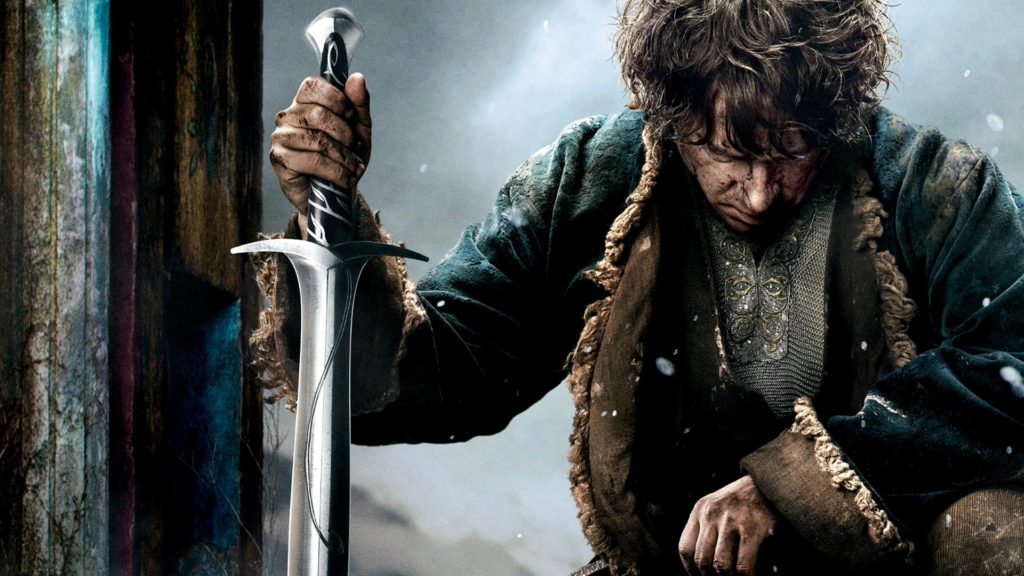Behold God’s Providence in ‘The Hobbit’
This article is part 2 of a series. Read part 1: Behold God’s Providence in ‘Beowulf.’
J. R. R. Tolkien spoke of Christianity as the true, historical fairy-story, where the refreshing experience of the fairy tale’s happy ending becomes fact in the Primary World.1 As a philologist, Tolkien knew that Gospel meant good news or God story:
Man the story-teller would have to be redeemed in a manner consonant with his nature: by a moving story.2
In this letter, Tolkien contemplates how “Christian joy which produces tears because it is qualitatively so like sorrow” best moves the soul in story form. Next his stream of consciousness moves to The Hobbit:
I had suddenly in a fairly strong measure the eucatastrophic emotion at Bilbo’s exclamation: “The Eagles! The Eagles are coming!”3
For Tolkien, his new word eucatastrophe defined the sudden and unexpected move toward the Good. This turn for him was epitomized in sacred history by the incarnation and crucifixion of Christ, God’s historical fairy tale where the joy of salvation, when deeply apprehended by the believing imagination, moves the Christian to tears.
Eucatastrophe is Tolkien’s literary retort to the maligned deus ex machina, or god out of the machine. Aristotle and many of his followers saw this as the ultimate black eye on narrative. But this is only true if the story denies the metaphysical possibility of God moving providentially in his creation. To some degree, this literary taste depends on the storyteller’s worldview, so Tolkien’s acceptance of God’s providence weakens the force of Aristotle’s deus ex machina critique.

J. R. R. Tolkien’s classic fantasy The Hobbit was published in 1937.
God providentially acts in the ‘angels’ of Middle-earth
The Eagles are Tolkien’s way of signaling that the one God, Eru Ilúvatar, is showing his hand in Middle-earth. These great birds are emissaries of Manwe, the lord of the angelic Valar and Maiar from The Silmarillion. Tolkien links Manwe to Michael the Archangel, and thus a servant of God. Tolkien writes of the Valar, “These latter are as we should say angelic powers, whose function is to exercise delegated authority in their spheres.”4
Closer to Bilbo’s story, we find another example of providence, similar to Paul’s teaching in Acts 17 that God is not far from us. Gandalf himself is one of the Maia, like a guardian angel for Bilbo and the Dwarves. Speaking of such angels, Hebrews 1:14 reads, “Are they not all ministering spirits, sent forth to minister for them who shall be heirs of salvation?”
Hebrews 1:7 also associates angels with fire and wind. Gandalf often uses fire as his primary weapon, such as by blasting Goblins in the mountain passage. His alliance with the Eagles also associates him with wind. Hebrews invokes angels to contrast their nature with Christ’s nature and underscore his divinity. Because Gandalf is an angel, his frequent presence inherently refers to the presence of another Being of higher glory.
God shows his power in the prophecies of Middle-earth
Still, Bilbo finds much success even when Gandalf is absent. For our halfling hero, the grey wizard is an agent of providence, but not the whole of it.
When Bilbo helps the Dwarves escape captivity in the Wood-elven kingdom and reach Lake-town, the townsfolk “began to sing snatches of old songs concerning the return of the King under the Mountain”5 This folklore prophesies the king will overthrow a dragon, so that:
The streams shall run in gladness
The lakes shall shine and burn,
All sorrow fail and sadness
At the Mountain-king’s return!6
We need not draw out this prophecy’s resonance with the book of Revelation. Yet curiously here, “no songs had alluded to [Bilbo] even in the obscurest way.”7 Like the gospel, The Hobbit prophecy is fulfilled with surprises.
“Will he do, do you think?” asks Gloin about Bilbo much earlier, going on to remark, “He looks more like a grocer than a burglar!”8 The Dwarf’s question echoes Nathanael’s: “Can any good thing come out of Nazareth?”9 As Scripture oft repeats, providence in The Hobbit works through the lowly to embarrass the lofty. Gandalf reminds Bilbo of this when the wizard says:
“Surely you don’t disbelieve the prophecies, because you had a hand in bringing them about yourself? You don’t really suppose, do you, that all your adventures and escapes were managed by mere luck, just for your sole benefit?”10
 Finally, God reflects his providence in the humility of a hobbit
Finally, God reflects his providence in the humility of a hobbit
Beowulf’s poet also emphasizes God’s sovereignty after the final battle of his story, echoing Paul’s Acts 17 sermon on Mars Hill: “God’s Doom was ever the master then of every man in deeds fulfilled, even as yet now it is”11
But Beowulf’s dragon confrontation and death shows a marked difference from Bilbo’s proverbial realization that he ought never laugh at live dragons: “He [Wiglaf] could not, dearly though he wished it, keep upon the earth his captain’s [Beowulf’s] life, nor any whit avert the Almighty’s will.”12 Beowulf negatively shows overweening pride in the face of spiritual warfare.
Meanwhile, Tolkien’s Dwarves are famously named after the Dwarves of Norse mythology. (Their names are directly taken from the Eddas.) Although the Dwarves prompt Bilbo to join their journey, the titular hobbit also finds himself growing apart from them as he discovers humility. Bilbo often shows this Christian virtue, such as when Gandalf reminds him that “you are only quite a little fellow in a wide world after all.” Bilbo replies: “Thank goodness!”13
Beowulf’s poet was right to see God’s providence even in his pagan past. Yet by doing this, the poet risked exalting Beowulf’s un-Christian pride and honor culture. That culture is similar to the Dwarves, especially Thorin, whom we are often told regarded himself as an “important Dwarf.” When Tolkien makes thief and burglar Bilbo his hero instead of Bard the Bowman—a far more Beowulfine figure—Tolkien reminds us of a fundamental Christian truth very different from the more pagan model: we are not the hero of our story.
- This article was originally published at Speculative Faith, July 18, 2020. It’s now reprinted in this two-part series, with some changes. ↩
- Letters of J. R. R. Tolkien, pages 100–101. ↩
- Ibid, page 101. ↩
- Ibid, page 146. ↩
- J. R. R. Tolkien, The Hobbit, page 182. ↩
- Ibid, page 182. ↩
- Ibid, page 183. ↩
- Ibid, page 18. ↩
- John 1:46. ↩
- J. R. R. Tolkien, The Hobbit, page 276. ↩
- Beowulf, page 96. ↩
- Ibid, page 96. ↩
- Tolkien, The Hobbit, page 276. ↩
































Share your fantastical thoughts.